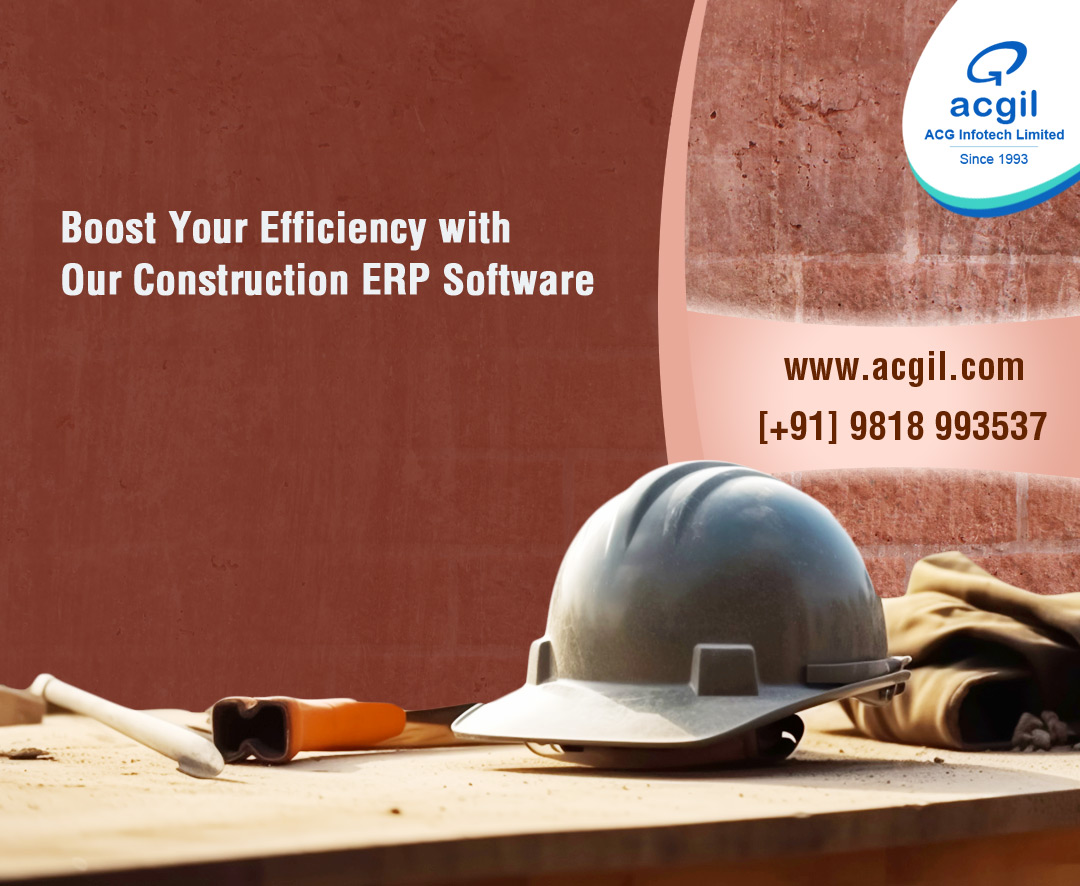Introduction
In the fast-paced world of construction, managing projects efficiently is crucial for success. Construction Enterprise Resource Planning (ERP) software has emerged as a powerful tool to streamline operations, enhance collaboration, and improve productivity in the construction industry. This article explores the benefits and features of construction ERP software, highlighting its impact on project management, cost control, resource allocation, and overall project success.
Table of Contents
- Understanding Construction ERP Software
- Key Features and Functionality
- Streamlining Project Management
- Enhancing Cost Control
- Optimizing Resource Allocation
- Improving Communication and Collaboration
- Increasing Productivity and Efficiency
- Enhancing Decision-Making
- Ensuring Compliance and Risk Management
- Integration with Other Systems
- Security and Data Management
- Training and Support
- Choosing the Right Construction ERP Software
- Implementing Construction ERP Software Successfully
- Conclusion
- FAQs
- Understanding Construction ERP Software
Construction ERP software is a comprehensive solution specifically designed to address the unique needs and challenges of the construction industry. It integrates various aspects of project management, accounting, procurement, resource management, and other critical functions into a single platform. By consolidating information and automating processes, construction ERP software enables construction companies to optimize operations and achieve better project outcomes.
- Key Features and Functionality
Construction ERP software offers a wide range of features and functionality tailored to the construction industry. Some common features include:
- Project management tools for planning, scheduling, and tracking project progress.
- Financial management capabilities for budgeting, invoicing, and cost control.
- Resource management modules to effectively allocate labor, equipment, and materials.
- Procurement and supply chain management functions to streamline purchasing and inventory management.
- Document management systems for efficient handling and retrieval of project-related documents.
- Reporting and analytics tools to gain insights into project performance and make data-driven decisions.
- Streamlining Project Management
Construction ERP software plays a vital role in streamlining project management processes. It provides a centralized platform where project managers can plan, schedule, and track projects in real-time. By automating tasks and workflows, it reduces manual effort and minimizes the risk of errors. Project managers can monitor project progress, identify bottlenecks, and make timely adjustments to keep projects on track.
- Enhancing Cost Control
Cost control is a critical aspect of construction projects, and construction ERP software helps in effectively managing project costs. It allows for accurate budgeting, tracking of expenses, and generating comprehensive financial reports. With real-time visibility into costs, project managers can make informed decisions to control expenditures and prevent cost overruns.
- Optimizing Resource Allocation
Efficient resource allocation is key to completing projects on time and within budget. Construction ERP software provides tools to manage labor, equipment, and materials effectively. It enables resource planning based on project requirements, availability, and skill sets. By optimizing resource allocation, construction companies can avoid resource shortages, minimize downtime, and improve overall project efficiency.
- Improving Communication and Collaboration
Effective communication and collaboration are vital for successful construction projects. Construction ERP software facilitates seamless communication among project stakeholders, including architects, engineers, contractors, and clients. It provides a centralized platform for sharing project-related information, documents, and updates in real-time. Collaboration features such as document sharing, instant messaging, and project dashboards enhance coordination and foster teamwork.
- Increasing
Productivity and Efficiency
Construction ERP software boosts productivity and efficiency by automating manual processes and eliminating redundant tasks. With streamlined workflows, project teams can focus on value-added activities rather than administrative work. Time tracking features allow accurate measurement of labor productivity, enabling better resource management. By reducing paperwork and manual data entry, construction ERP software saves time and increases overall project efficiency.
- Enhancing Decision-Making
Data-driven decision-making is essential in the construction industry. Construction ERP software provides comprehensive reporting and analytics capabilities, offering real-time insights into project performance, costs, and resource utilization. Project managers can leverage these insights to make informed decisions, identify areas for improvement, and implement strategies to enhance project outcomes.
- Ensuring Compliance and Risk Management
Compliance with regulatory requirements and effective risk management are critical in construction projects. Construction ERP software helps companies stay compliant with industry standards and regulations by providing tools to track and manage compliance-related activities. It also facilitates risk identification, assessment, and mitigation by centralizing project data and enabling proactive risk management practices.
- Integration with Other Systems
Construction ERP software can integrate with other systems commonly used in the construction industry, such as Building Information Modeling (BIM) software, project scheduling tools, and financial accounting systems. Integration ensures seamless data flow between different systems, eliminating data silos and improving overall operational efficiency.
- Security and Data Management
Data security is of utmost importance in the construction industry. Construction ERP software incorporates robust security measures to protect sensitive project information from unauthorized access. It also offers data backup and recovery capabilities, ensuring that critical project data is safeguarded and can be restored in case of any unforeseen events.
- Training and Support
Implementing construction ERP software requires proper training and ongoing support. Many software vendors offer training programs to help users understand the software’s features and functionality. Additionally, they provide technical support to address any issues or questions that may arise during software usage.
- Choosing the Right Construction ERP Software
Selecting the right construction ERP software is crucial for maximizing its benefits. When choosing a software solution, consider factors such as functionality, scalability, ease of use, vendor reputation, and customer support. It is recommended to evaluate multiple options, request demos, and seek feedback from other construction professionals before making a final decision.
- Implementing Construction ERP Software Successfully
Successful implementation of construction ERP software requires careful planning and stakeholder involvement. It is essential to define clear objectives, establish a project team, and allocate resources for the implementation process. Adequate training and change management strategies should be in place to ensure smooth adoption of the software across the organization.
- Conclusion
Construction ERP software has revolutionized project management in the construction industry. By streamlining operations, enhancing collaboration, and providing real-time insights, it empowers construction companies to deliver projects on time, within budget, and with improved overall quality. Embracing construction ERP software can help construction companies stay competitive in a rapidly evolving industry. Thus, Are you searching for the best ERP Software Development Company in India, choose ACG Infotech. ACG Infotech is a leading ERP company is India which offers Mx-ERP software for real estate and construction industry at affordable prices.
FAQs
Q1: Can construction ERP software be customized to fit specific project requirements?**
Yes, construction ERP software can be customized to align with specific project requirements. Vendors often provide customization options to tailor the software to the unique needs of construction companies.
Q2: How does construction ERP software help in resource planning?**
Construction ERP software enables effective resource planning by considering project requirements, availability, and skill sets. It allows project managers to allocate resources optimally and avoid resource shortages.
Q3: Can construction ERP software integrate with other software systems used in the construction industry?**
Yes, construction ERP software can integrate with other software systems commonly used in the construction industry, such as project scheduling tools, BIM software, and financial accounting systems.
Q4: Is training provided for using construction ERP software?**
Yes, most software vendors offer training programs to help users understand the features and functionality of construction ERP software.
Q5: What are the key benefits of implementing construction ERP software?**
The key benefits of implementing construction ERP software include streamlined project management, enhanced cost control, optimized resource allocation, improved communication and collaboration, increased productivity and efficiency, and better decision-making based on real-time data.

